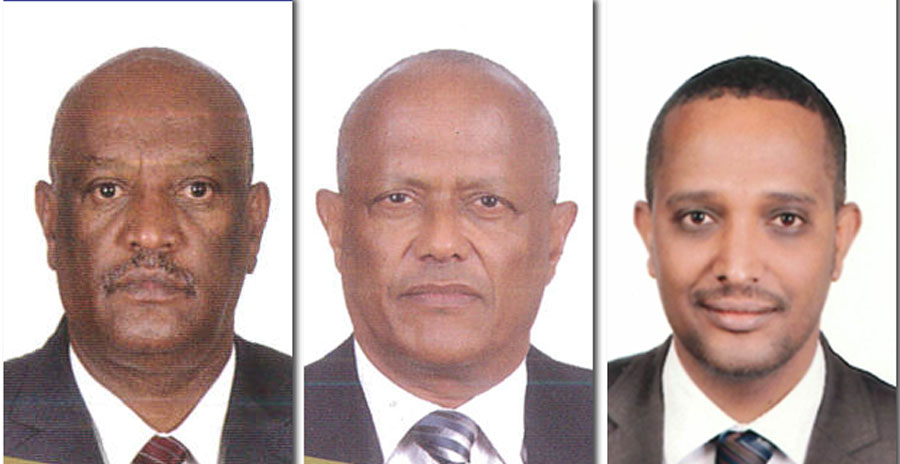
Radar | Jul 13,2025
The government has identified seven hydropower projects to be implemented by independent power producers in a public-private partnership (PPP) model.
Out of the seven hydropower projects, Ethiopian Electric Power (EEP)selected four that require amendments to their previous feasibility studies, while three of them need new feasibility studies.
Expected to generate 2,300MW of electric energy, the projects are located in Amhara, Oromia and Somali regional states and require a total of 4.3 billion dollars in investment.
Chemoga Yeda is a 280MW hydropower project located in Amhara Regional State. Geba I and II (395MW), Halele & Worabesa (420MW), Birbir (464MW) and Dedesa (300MW) are situated in Oromia Regional State. Genale Dawa-GD5 is a 100MW project slated for Somali Regional State, while Genale Dawa-GD6 is a 246MW project spanning both Somali and Oromia regional states.
The projects join eight solar power projects that are in the pipeline slated for private sector participation, costing close to 900 million dollars and expected to generate 1,100MW of power. These solar projects were approved by the Board of Private and Public Partnership, which is comprised of 10 members from the Ministry of Finance, the National Bank of Ethiopia, the Ministry of Water, Irrigation & Electricity and two representatives from the private sector.
The feasibility study of the seven projects, which includes a resettlement action plan, as well as an amendment to previous environmental and social impact assessments, is expected to cost up to five million dollars, out of which one million dollars was granted from the African Development Bank.
A tender to hire a company to conduct a feasibility study was floated seven months ago. During the evaluation process, EEP will shortlist six companies from the 37 companies that have participated in the bidding process.
The shortlisted companies will be sent to the AfDB, which will be selecting the winning company, according to Bizuayehu Tesfaye (PhD), director of Energy Resource Development at Ethiopian Electric Power.
“In three months, the result of the evaluation will be unveiled, and the consultant will be hired to start the job,” said Bizuayehu.
Revising the feasibility studies of the four hydropower projects could take up to half a year, while upgrading from pre-feasibility to feasibility will take up to one and a half years.
The winning consultant will also prepare Power Purchase Agreement and Implementation Agreement structures, prepare bid documents and participate in the bid evaluation together with EEP and the PPP Director General at the Finance Ministry.
The Ministry of Finance will review the tender document, float the bid for the developer firms and participate in the evaluation with EEP.
The aim of the revision for the four projects is to harmonise the projects with existing situations, as well as change the modalities of the projects from engineering, procurement & construction (EPC) that have been started by the government to PPP models, according to Bizuayehu.
In the EPC, the contractors carry out the detailed engineering design, procure equipment and materials, and deliver a functioning facility or asset to their clients. However, in PPP models, the public agency and a private sector entity collaborate for mutual benefit and ownership.
The need to devise the PPP policy was arrived at due to shortages in government financing to achieve the goals set out in the Second Edition of the Growth & Transformation Plan, according to Haji Ibsa, communications director at the Ministry.
As the power demand of the country escalates due to the growth of population, industry and other factors, more power generation becomes a necessity using all the resources the country has, said Tigabu Atalo, a consultant in the energy sector.
Developing hydropower has a high social and environmental impact, and there will be high risks and uncertainty factors as the development would take longer, up to nine years, and there are possibilities of economic, political and social changes and regulatory variations, according to him.
"There must be a stable regulatory environment and risk mitigation plan to create confidence in the developers," Tigabu suggested.
PUBLISHED ON
Jul 06,2019 [ VOL
20 , NO
1001]

Radar | Jul 13,2025

Radar | Sep 19,2020

Fortune News | Dec 10,2018

Fortune News | Jan 23,2021

Radar | Apr 24,2023

Radar | Apr 30,2024

Fortune News | Sep 03,2022

Fortune News | Sep 04,2021

Radar | Feb 02,2019

Fortune News | May 25,2019

Dec 22 , 2024 . By TIZITA SHEWAFERAW
Charged with transforming colossal state-owned enterprises into modern and competitiv...

Aug 18 , 2024 . By AKSAH ITALO
Although predictable Yonas Zerihun's job in the ride-hailing service is not immune to...

Jul 28 , 2024 . By TIZITA SHEWAFERAW
Unhabitual, perhaps too many, Samuel Gebreyohannes, 38, used to occasionally enjoy a couple of beers at breakfast. However, he recently swit...

Jul 13 , 2024 . By AKSAH ITALO
Investors who rely on tractors, trucks, and field vehicles for commuting, transporting commodities, and f...

Jul 12 , 2025
Political leaders and their policy advisors often promise great leaps forward, yet th...

Jul 5 , 2025
Six years ago, Ethiopia was the darling of international liberal commentators. A year...

Jun 28 , 2025
Meseret Damtie, the assertive auditor general, has never been shy about naming names...

Jun 21 , 2025
A well-worn adage says, “Budget is not destiny, but it is direction.” Examining t...